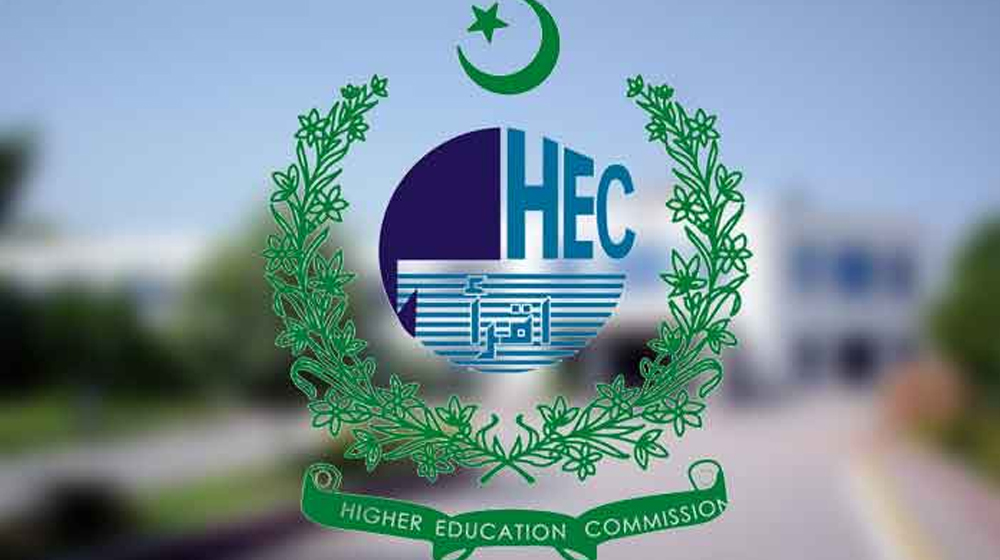
The Higher Education Commission (HEC) has directed universities to announce examination policies as an attempt to eliminate examinations will have severe repercussions.
The purpose of examinations is to reward students for actions that will make them successful in their future lives.
This was stated by the Chairman HEC Tariq Banuri, in a meeting with the Vice-Chancellors and Rectors of all public and private universities of the country.
He was responding to a question about whether universities should promote students without any exam.
Examinations and assessments are an integral part of the teaching process. Attempts to eliminate exams will have severe repercussions for educational quality and student achievement. Only fake degree mills issue degrees and certificates without verification.
This was the fourth meeting between HEC and the Vice Chancellors since the advent of the Coronavirus pandemic.
It was convened to reach a consensus on examination policy, admission policy, academic quality, and the academic calendar during the pandemic.
The meeting decided that all universities will announce their policies on examinations and admissions within one week. All attempts will be made to protect the academic calendar.
The special problems faced by graduate students will be addressed. HEC will set up an appellate system to follow up on student complaints.
Sharing their views on the occasion, the Vice-Chancellors appreciated HEC for its proactive approach towards the impending academic hardships in the wake of the lockdown and closure of universities. They agreed to come up with their examination policies, based on natures of examinations, aligned with their respective feasibility scenarios and needs of students.
Participants agreed that HEC and universities have shared objectives, as they want to save the semester, avoid disruption in the academic calendar, motivate students to keep learning, and address the issues of graduating students.
The common sentiment among academic leadership is that that semester should not be allowed to go waste. There was also the shared concern that disruption in academic calendars is costly and takes a long time to correct, as the disruption of the 1980s led to a loss of time and quality with prolonged impact. All efforts must be made to sustain educational activities during this difficult period, so as to minimize any disruption in the academic calendar.
HEC directed universities to formulate and publicly announce transparent policies on how they will conduct examinations at the end of the semester. HEC canvassed the approaches being taken by universities all over the world and shared the most successful options with universities.
However, each option involved significant pros and cons. Universities can use any combination of the options as long as they met the minimum standards of readiness and shared the policy publicly.
Please review these options that we discussed today, formulate a clear policy on how this will be done, and share the policy as well as additional guidelines with your students, faculty as well as HEC.
A clear policy is also needed on admissions in the light of the recent decisions by examination boards to announce results on the basis of past exams. Universities were asked to decide how they will evaluate these results in order to make admissions decisions.
HEC will circulate prudential guidelines on exams as well as admissions in order to ensure that the students’ concerns are not ignored and every attempt is made to ensure the quality of education.
The chairman stated that Pakistan is going through a national emergency and the HEC and universities, in their capacities, are committed to providing public service by fulfilling their obligations. He said that students had raised a number of concerns, including the quality of online instruction, the issues of connectivity, and uncertainty with regards to examinations.
Universities had initiated action on quality issues, and their reports are being evaluated at HEC. Also, efforts are afoot to address some of the connectivity issues faced by students through collaboration with PTA and the telecom companies and targeted investment in supportive programs. Finally, universities need to adopt transparent assessment policies to eliminate the uncertainty and confusion of plaguing students.
The participants also discussed how to exploit the prevailing crisis as an opportunity to enhance the quality and effectiveness of teaching. The future scenario is uncertain and the closure of universities till July 15, 2020, could be extended. This has necessitated decisions and steps on part of both HEC and universities with regard to online teaching, examinations, and admissions. These decisions could also help enhance the educational experience even later on.
The chairman also asked the Vice Chancellors to take steps to resolve the problems facing the graduating students on an urgent basis, in addition to making decisions about new admissions, thesis research, and use of laboratories. He said HEC has shared its guidelines with the universities about thesis defense, allowing it to be online.
He urged the Vice-Chancellors to supervise and assist their faculty to streamline the labor-intensive work, helping them render the online learning management system a success. “All the complaints need to be taken seriously.” He informed the VCs that an appellate procedure will soon be set up to look into the complaints.